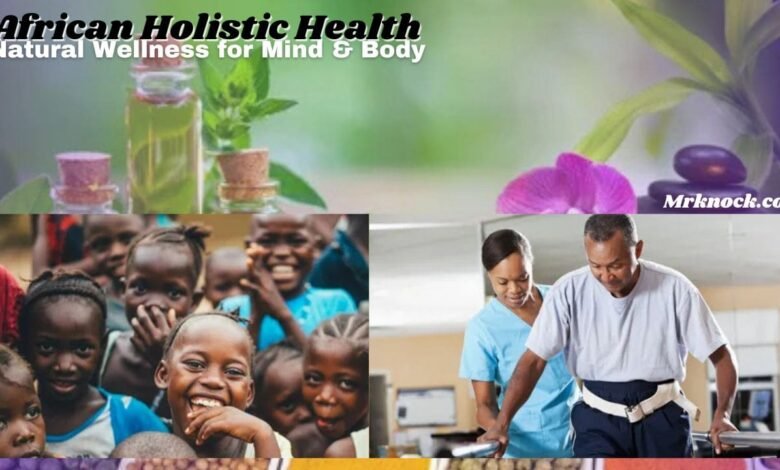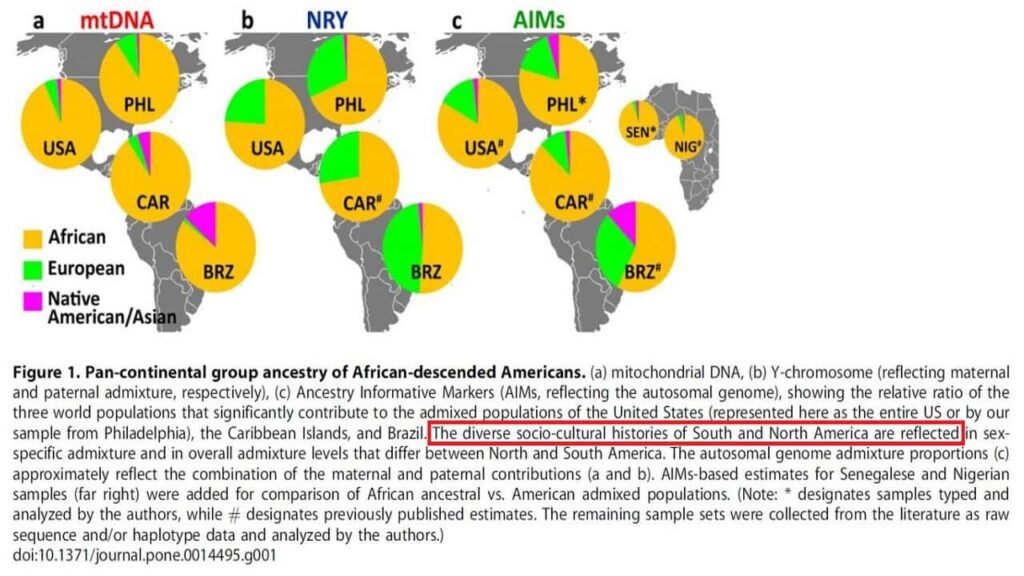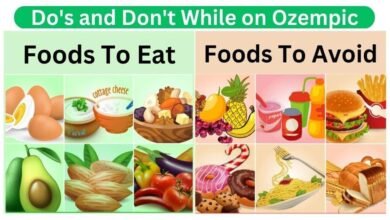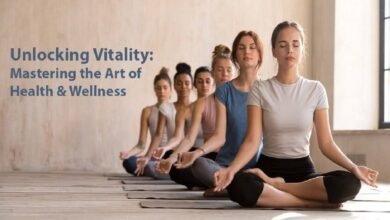African Holistic Health: Natural Wellness for Mind & Body

In an international in which current medication frequently dominates healthcare practices, African holistic health provides a fresh, natural opportunity rooted in centuries-old traditions. This method of health specializes in treating the body, thoughts, and spirit as interconnected entities. African holistic health practices are not most effective in treating bodily signs and symptoms; however, they also foster average well-being, balance, and concord.
African Holistic Health
African holistic health is a complete method of health that integrates physical, emotional, religious, and intellectual health. It is the perception that all these elements are interconnected, and proper recovery can best arise when stability is in all areas. The African holistic perspective emphasizes herbal treatments, non-secular practices, and a deep connection to nature, networks, and ancestors.
This fitness machine goes beyond treating signs and symptoms; it seeks to heal the primary causes of illnesses, selling long-lasting well-being and harmony.
Historical Roots of African Holistic Health
African civilizations, including the Egyptians, Ethiopians, and Yoruba of Nigeria, have been recognized for their superior information on health and medicinal drugs. Their expertise in herbalism, non-secular healing, and bodywork strategies formed the foundation for what we now call African holistic health.

These practices have been passed down through generations and remain relevant in many African groups.
The Core Principles of African Holistic Health
The central principle of African holistic fitness is that health isn’t simply the absence of disorder but a state of physical, mental, and religious well-being. Some of the critical standards consist of the following:
- Balance: Achieving harmony between the frame, thoughts, and spirit.
- Natural Healing: Using herbs, plant life, and natural elements to heal the body.
- Spirituality: Integrating spiritual practices and a connection to ancestors.
- Community Support: Healing in the context of a supportive community.
Traditional African Herbal Medicine
A. Popular African Medicinal Herbs
Herbs are an essential part of African holistic fitness. Traditional healers, called herbalists or “sangomas” in southern Africa, have in-depth expertise in indigenous vegetation and restoration houses. Some of the most famous medicinal herbs in African holistic practices consist of:
- Moringa: Known for its wealthy nutrient profile, it addresses irritation and boosts immunity.
- Buchu: A South African herb used for kidney and urinary tract health.
- Hibiscus: Often used to lower blood strain and is a precious aid for digestion.
- Devil’s Claw: Known for its anti-inflammatory and pain-relieving houses.
B. Uses and Benefits of Herbal Remedies
African natural treatments may be used to treat a wide range of ailments, from digestive issues and pores and skin conditions to persistent illnesses like high blood pressure and diabetes. Herbs are regularly brewed into teas, made into poultices, or eaten raw to provide herbal recuperation.
Spirituality in African Healing Practices
Spirituality is central to African holistic health. Physical illnesses regularly have religious or emotional reasons, and authentic healing can only happen when those more profound issues arise. Many African cultures consider the energy of ancestors and spirits, calling upon them during recuperation ceremonies to guide the procedure.
Practices with prayer, chanting, and drumming are often integrated into healing rituals, fostering a connection to the divine.
Nutrition and African Holistic Health
African Holistic Health: Natural Wellness for Mind, Body & Spirit

A. Ancient African Diets
African diets have traditionally been plant-primarily based, emphasizing complete grains, legumes, veggies, and legumes. These diets are rich in fibre, vitamins, and minerals, contributing to regular fitness and power.
B. The Role of Plant-Based Foods
Plant-based total food plays a critical function in African holistic fitness. Foods like millet, sorghum, yams, and leafy veggies are staples in many African diets, supplying crucial vitamins that help physical features and promote healing. These ingredients are also regarded for detoxifying homes and helping clean the pollutants’ frame.
The Role of Rituals and Ceremonies
Rituals and ceremonies are an essential element of African holistic fitness. Whether it’s a cleansing rite to rid the frame of negative energies or a community ritual for collective recovery, these practices are crucial in maintaining religious and emotional well-being. Rituals contain track, dance, and offerings to the ancestors, developing a deep sense of connection and grounding.
8 African Holistic Healing for Mental Health
A. Emotional Well-being
In African holistic fitness, emotional well-being is as critical as bodily fitness. African healers recognise the impact of feelings on the body, frequently linking emotional misery to physical illness. Practices, storytelling, song remedies, and communal guides help individuals process emotions and locate peace.
B. Psychological Practices
African cultures have a protracted culture of addressing psychological troubles via herbal ways Regular meditation, reflection, and traditional counselling sessions are also needed to help people gain intellectual readability and emotional balance.
The Importance of Community in African Wellness
Community is relevant to African holistic fitness. Healing is often visible as a collective attempt in which individuals depend on their households’ and groups’ strength and aid. This communal technique to fitness emphasises the interconnectedness of all network members and the perception that a person’s well-being contributes to the well-being of the whole.
Physical Therapies: African Healing Touch
Physical contact is another crucial factor of African holistic fitness. Traditional bodywork therapies, consisting of rubdown and acupressure, are used to launch anxiety and promote movement. These cures restore energy drift in the frame, helping relieve aches and promote relaxation.
Fasting and Detoxification in African Holistic Practices
Fasting is a joint exercise in African holistic fitness that detoxifies the body and resets its systems. Fasting can wreck individuals’ digestive systems, allowing the body to concentrate on restoration and regeneration. Fasting may have a profound impact on standard health.
Breathing Techniques and Meditation
Breathing, sporting activities, and meditation are essential in African holistic fitness practices. Individuals can reduce stress, enhance intellectual clarity, and foster a deeper connection to their bodies by specialising in their breath. These practices assist in calming the worried machine, promoting rest and internal peace.

African Holistic Health and Modern Medicine
While African holistic fitness is deeply rooted in tradition, it can complement present-day medical practices. Many humans use holistic strategies as an accessory to standard remedies, using herbs and natural healing procedures to assist restoration. By integrating cutting-edge and conventional methods, individuals can create a balanced, complete technique for well-being.
How to Integrate African Holistic Health into Your Life
To integrate African holistic fitness into your daily existence, don’t forget to adopt several essential thing concepts:
- Use natural remedies for commonplace ailments.
- Incorporate plant-based totally elements into your weight loss plan.
- Practice meditation and respiration strategies for mental readability.
- Engage in community aid for emotional well-being.
- Honour religious practices that resonate with you.
Conclusion: The Relevance of African Holistic Health Today
African holistic health provides a robust, herbal method of restoration that is still applicable today. By focusing on the entire man or woman—mind, frame, and spirit—this ancient way of life presents a pathway to actual well-being. African holistic fitness practices can offer a nurturing and supportive framework for reaching a lovely being, whether looking for bodily restoration, mental readability, or non-secular stability.
FAQs about African Holistic Health
What herbs are utilized in African holistic remedies?
Common herbs used for their restoration residences encompass moringa, Buchu, hibiscus, and devil's claw, which include moringa Buchu hibiscus and devil's claw.
How does spirituality play a position in African restoration?
Spirituality is critical to African recuperation practices, with a robust belief in the electricity of ancestors and spiritual rituals.
Can African holistic fitness be blended with a contemporary remedy?
Many human beings use holistic African practices and temporary clinical remedies for a more comprehensive fitness method.
How can we incorporate African holistic health into our lifestyles?
You can start using natural remedies, adopting plant-based diets, working towards meditation, and implementing a network guide for emotional well-being.





